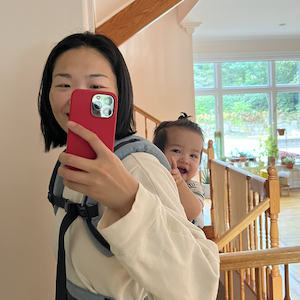I love being a mother. I want to shout it from the rooftop, let the world know just how much I relish and delight in the experience of motherhood. It is a pure gift from the divine (and I do not use that word with any morsel of sarcasm) – to get to hold my daughter, gaze into her eyes and then make her laugh and coo like nothing else in this world matters. It’s magic.
I didn’t think I would enjoy motherhood as much as I do. My therapist labelled me as a non-mothering type. Out of the 3 pillars of archetypes: mother, hermit, and warrior, I was the latter two. But these days, I don’t have time to wrestle with labels or categories. My days are fluid and immediate, less in my head and more in my body.
So motherhood has been a blessing, but let me tell you, the culture of motherhood is something else altogether. As soon as sperm meets egg, the faceless machine of The Algorithm begins to plot and spin its tentacles. But this post isn’t about techno-pessimism. To be frank, I welcome some of the Content. I’ve gone down many a rabbit hole on Montessori-tok, gentle parenting-tok, and have exclusively purchased clothes for Naomi from shops advertised to me on Instagram. So the phenomenon of momfluencing, while fascinating, is a little stale for me to write about. This post is about the cult of motherhood books – the good, the revelatory, and the pure toxic.
Here are my notes on all the books I’ve read on parenting so far.
Bring up Bébé
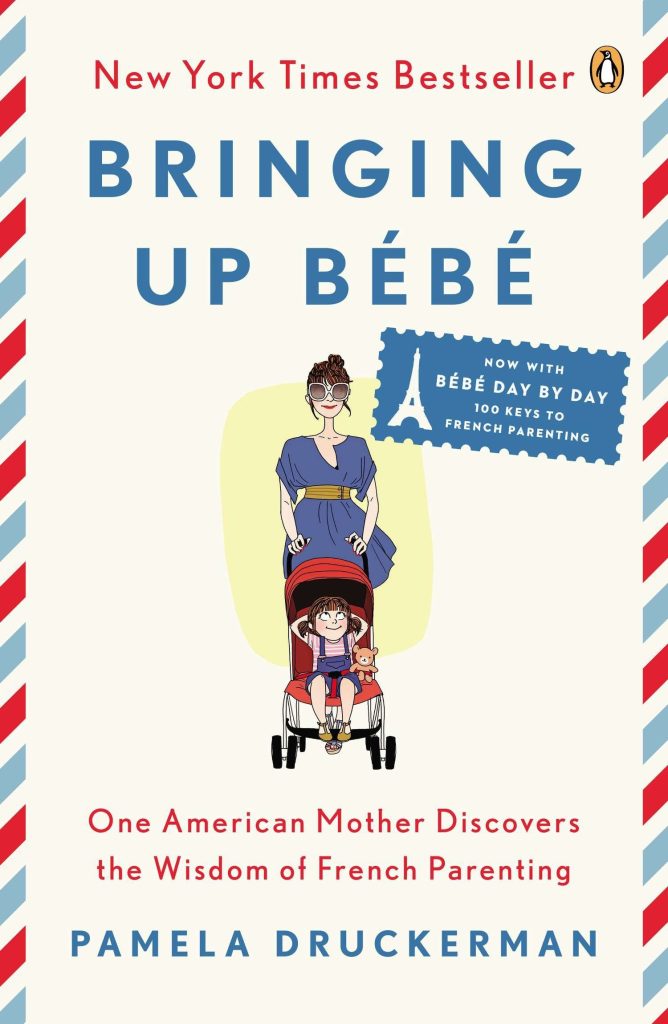
This book is about an American mother encountering parenting culture shock in France. This was my very first foray into parenting books and I read it during a particularly debilitating stretch of nausea, which is to say, I was naive, hopeful, and desperate for control. On a scale of 1 to toxic, this book wasn’t the worst offender, but do not be fooled by the perfect French parenting veneer. The section on how effortlessly French women seem to lose their postpartum weight gave me a false sense of expectation. The message I got was if you don’t bounce back within 3 months, you’re a pig who cannot control your portions. Boy, was I surprised by my own experience. But some of the other stuff must have seeped into my unconscious, because I catch myself extolling the virtues of setting a cadre or framework within the home, a set of consistent rules, such as no snacks before dinner, so that children can experience freedom within.
Expecting Better
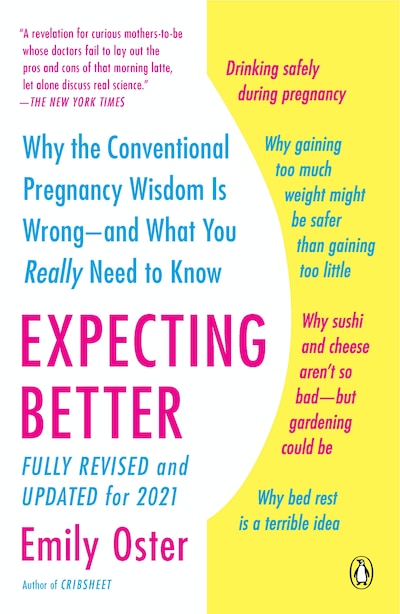
I feel like you can’t avoid Emily Oster if you’re expecting these days and I believe that’s a good thing. She has changed the landscape of pregnancy books, which used to coddle the pregnant person to a point of absurdity. She uses her economics background to analyze data in order to answer topics such as alcohol or raw fish consumption during pregnancy. She green lights both with caveats. If her books can be summed up, it is that it puts the power back into the hands of the pregnant one. Rather than letting her perish in fear and anxiety over every possible danger, Oster assures and basically says to do what makes you happy, just in moderation.
What No One Tells: A Guide to your Emotions from Pregnancy to Motherhood
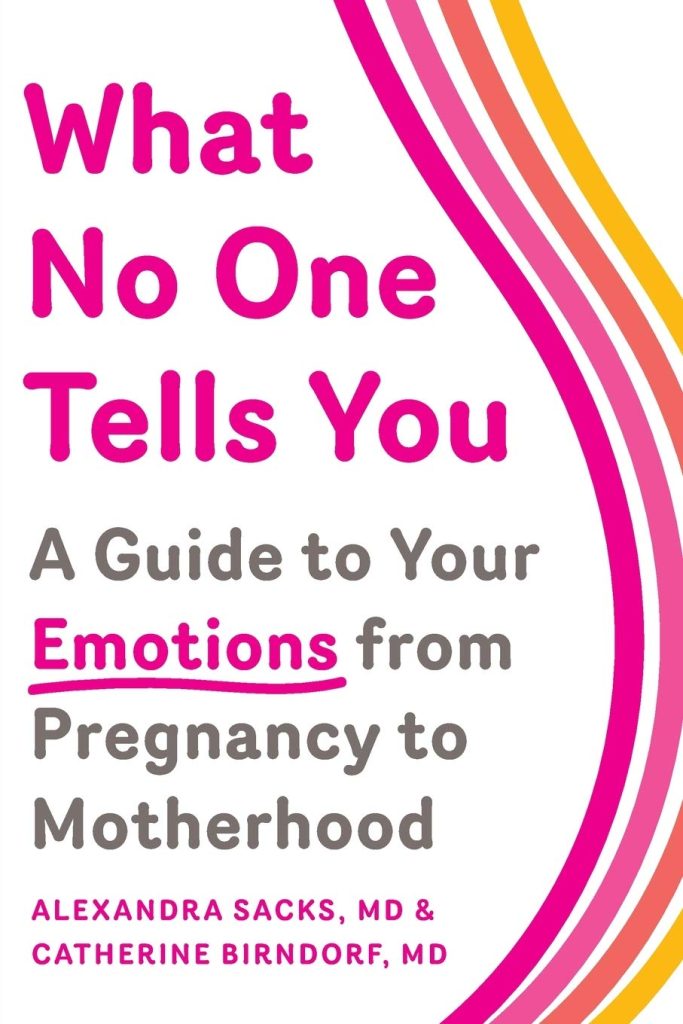
What was unexpected about pregnancy and motherhood, aside from everything that comes with growing and caring for a new life form, is the seismic change in my relationship with just about everyone. Though the book can be repetitive at times, the emotional changes it highlights at different stages of the journey have been pretty bang on. It has helped me understand what was happening between my parents and me. I was becoming the parent in our family pushing them to redefine their roles and identities. There were arguments, there were tears, and there were breakthroughs. And this book had predicted it all.
Babywise
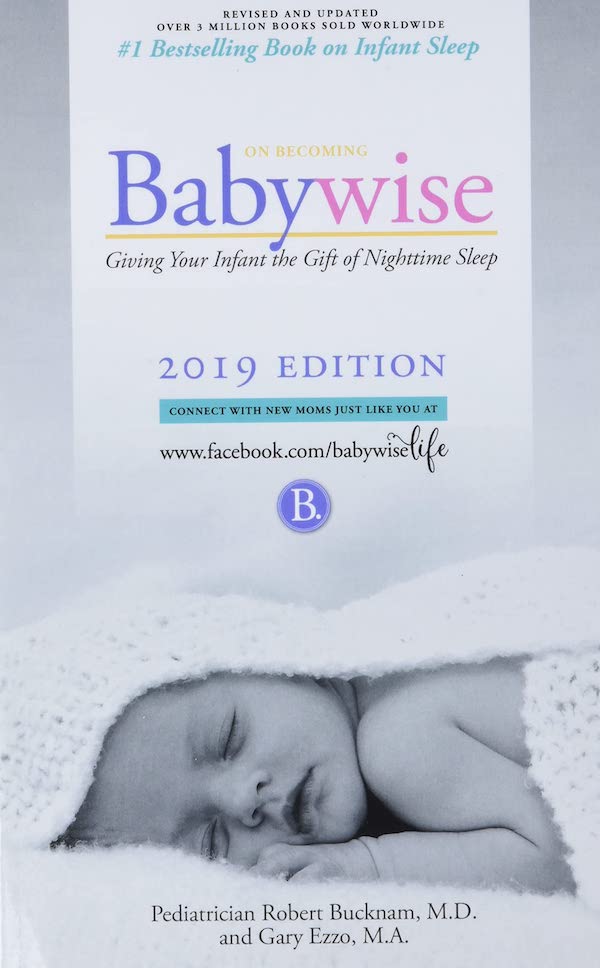
I picked this up during a particularly terrible bout of sleep deprivation. I was desperate and willing to try anything to improve sleep for me and the bebe, including reading a book recommended by a random person’s comment under the fifth Youtube video I’d watched on baby sleep. The entire book revolved around the premise that your baby must follow the feed-wake-sleep cycle or else all hell breaks lose. This means feeding the baby as soon as she wakes up, and after an age-appropriate amount of time has elapsed, putting them to sleep (without feeding). I tried my hardest to follow this seemingly simple structure, but in hindsight, I think I spent way too much energy obsessing over it when she did not follow it to the T. If I could be reincarnated back into a book for my early motherhood self, it would simply say babies are unpredictable. You’re not doing anything wrong. Here are some simple guidelines to help you through this rough patch of time, but you’re not doing anything wrong if it doesn’t help. Take it one day at a time. You will sleep again. Your baby will sleep through the night one day. You will survive it and you will thrive.
The Womanly Art of Breastfeeding

Before I begin to shred this book to pieces, let me just say, my opinion on this book is in no way critiquing breastfeeding whatsoever. When breastfeeding works, it’s wonderful. It’s the pressure for a woman to breastfeed at the expense of her mental health that I’m critiquing and this book fed directly into that frenzy. At my most desperate (desperation seems to be the theme that runs through my early days of motherhood), stretching/restretching yet another nipple shield across my chest and cupping my newborn’s face haphazardly in the dark, I turned to this book, naively believing a goddamn book could solve Naomi’s latching problems.
The Womanly Art of Breastfeeding is published by a group called La Leche League International. If you are a breastfeeding person who has ever had trouble breastfeeding (ie almost everyone in the beginning), you probably have read one or two of their articles. They are a huge organization with a wide reach. This seemingly innocuous group was founded by seven Catholic mothers in the 50s to promote the virtues of breastfeeding, which, at a time when doctors recommended formula, was radical.
After reading 80%, I had to give up the book to save my sanity. I kept searching for the needle in the haystack that would finally cure me of my breastfeeding troubles, but instead found judgment, shame, and zealotry masquerading as sound advice. And let me tell you, when every feeding (newborns feed 8 times per 24 hours) ends in tears or screams (mom’s and babe’s), having a group of elderly women tell you if it ain’t working, you’re not trying hard enough is a dagger through your already bleeding heart. What about pumping, you ask (as I ended up doing for 7 months)? The ladies spend another chunk of the book evangelizing that breastfeeding is not just for the nutrition, it’s to set your baby up for a lifetime of emotional stability.
If you think I’m exaggerating, here are just a few quotes. I had to choose wisely, or else I’d copy and paste the entire book.
“His nursing relationship with you becomes the foundation of the way he will think of himself and others. One mother pointed out that it’s as if bottles fill his stomach, but breastfeeding fills his soul.”
“The breastfeeding experience can also help heal many emotional wounds, from a difficult or traumatic birth to an abusive past. “Baby blues” are more common in societies such as ours where mother and baby are not able to stay together, nursing, from birth.”
You know what cured my baby blues? Help. My parents coming over every day and cooking dinner for me. And finally giving up on trying to make nursing happen.
If you need more convincing that this book is as toxic as it gets, it literally tells women to rethink going back to work. “Our plea to any mother who is thinking about taking an outside job is, ‘if at all possible, don’t.’ ”
No I wasn’t reading the 1950s version. I was reading the latest version on my Paperwhite Kindle. Ironically, that was when I knew this entire book was a sham and I needed to cleanse myself of its brainwashing before I slipped deeper into my postpartum anxiety. That was when I threw in the towels on nursing and I haven’t looked back since.
The Montessori Baby
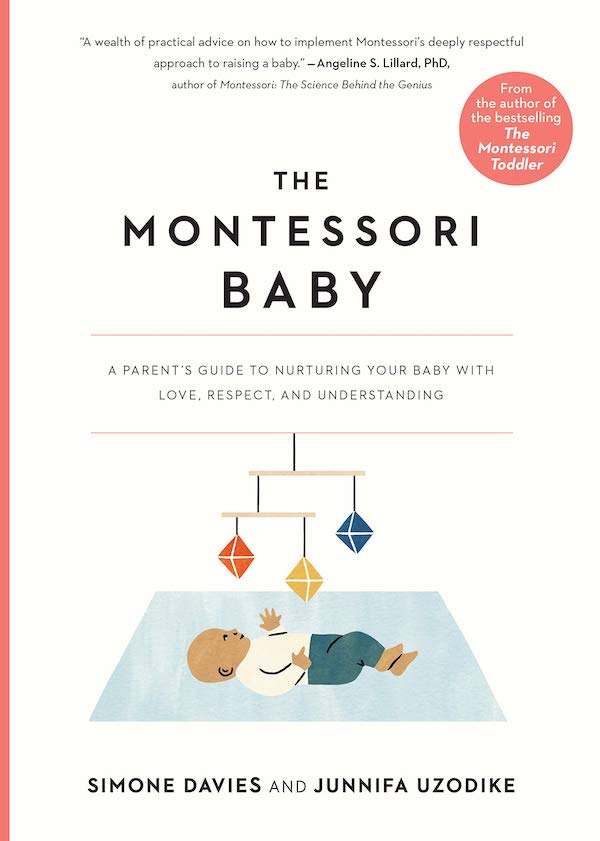
If you’re a mom on social media, you will have run into Montessori content. I actually like the premise of Montessori, but every chapter of this book was just a few points regurgitated. I’d save your time and money and stick to Montessori Tiktok.
French Kids Eat Everything
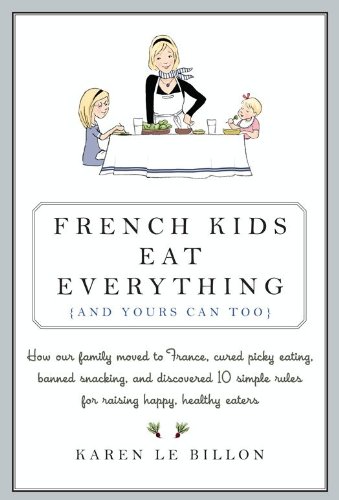
I wish I had some snarky thing to say about this book (like here’s yet another take on over-romanticizing the french culture), but the truth is, I learned a lot from it, if simply from an anthropological look at France’s top down obsession with food. Personally, I am a fan and wish everyone in the world adored food the way the French do.
Similar to Bringing up Bebe, the author is a Canadian transplant who had to navigate the French culture of eating with toddlers who were extremely picky eaters. She writes candidly about clashing with her French in-laws (who disapproved of the way her eldest refused to eat anything but white pasta) and her own relationship with food. Although picky-eating is mostly a psychological phenomenon, what I’ve learned is that it’s also a cultural phenomenon. When you have an entire nation that revolves around eating good food, from the way agriculture is designed to a school system that embeds food education into its curriculum and serves a fresh, 3-course gourmet lunch to toddlers, you will get children who eat everything.
That said, there are things you can do at home to encourage a more adventurous eater. I especially love the multi-sensory activity the French do with their children, such as blind smelling, tasting, and touching and then guessing different food items.
I’m careful not to preach here. It boils down to what you, as parents, consider important. Sam and I so happen to love food so we wanted to raise an adventurous eater. Much to the chagrin of the grandparents, we started her on real food from 6 months, which, of course, is part of the greater Baby Led Weaning movement. At 11 months, I have to say it’s been going better than I hoped. Of course there are days where she throws more food on the ground than in her mouth, but this baby squeals with excitement whenever natto* is served. That’s more than I can say for myself.
*natto made from scratch and shipped iced from a boutique in Montreal. Are we monsters?
The Diaper Free Baby & Go Diaper Free
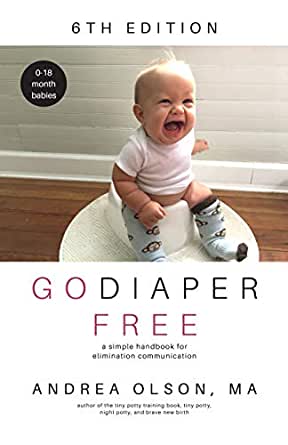
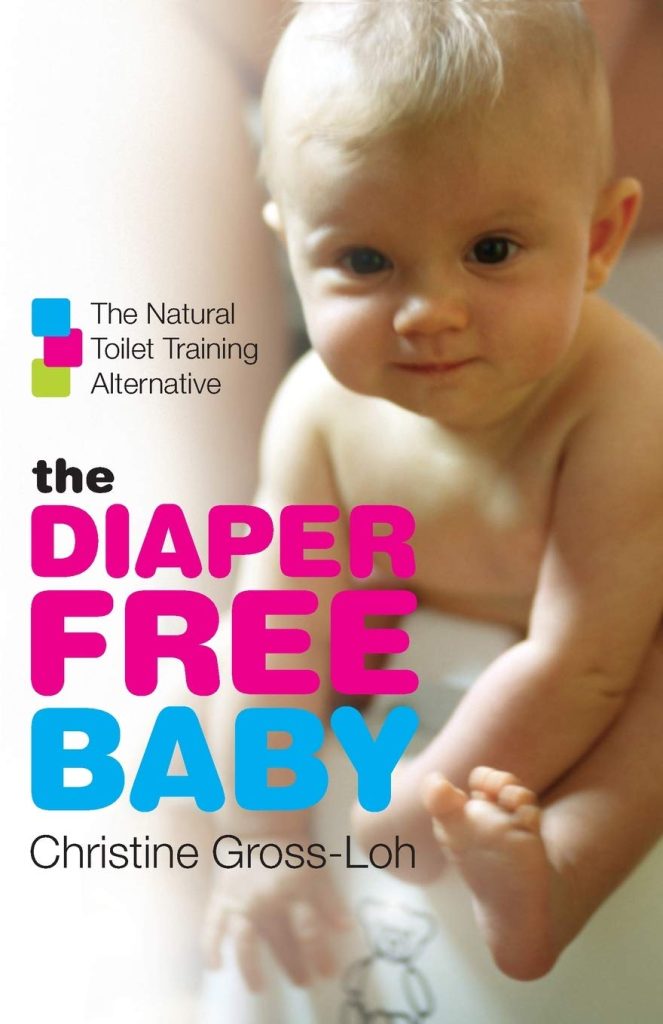
These are the leading books on Elimination Communication, which is a method of potty-training that starts from birth. By following this method, your baby can be out of diapers much earlier (18 months vs 2-3 years). I didn’t take this method seriously until my dad told me I was basically out of diapers by 1. As it turns out, what the west considers an alternative way of potty-training is simply a way of life in China and in many other countries. While these books did help me figure out how to implement EC at around 3 months, both books could have been easily condensed into short PDFs.
EC works, but it takes dedication and requires everyone in the family to be committed to it. Since Naomi has turned 9 months, she has been using the toilet exclusively for all of her number twos. And for the months before that, I would say we had a success rate of 80%. Not bad. My only caveat is that as much as I love this method, I have my reservations about this EC community. Like the non-medicated aka natural birth community, it’s filled with a lot of toxic messaging. Ignore those. I do this because I don’t like cleaning poopy diapers.
I’ll Show Myself Out
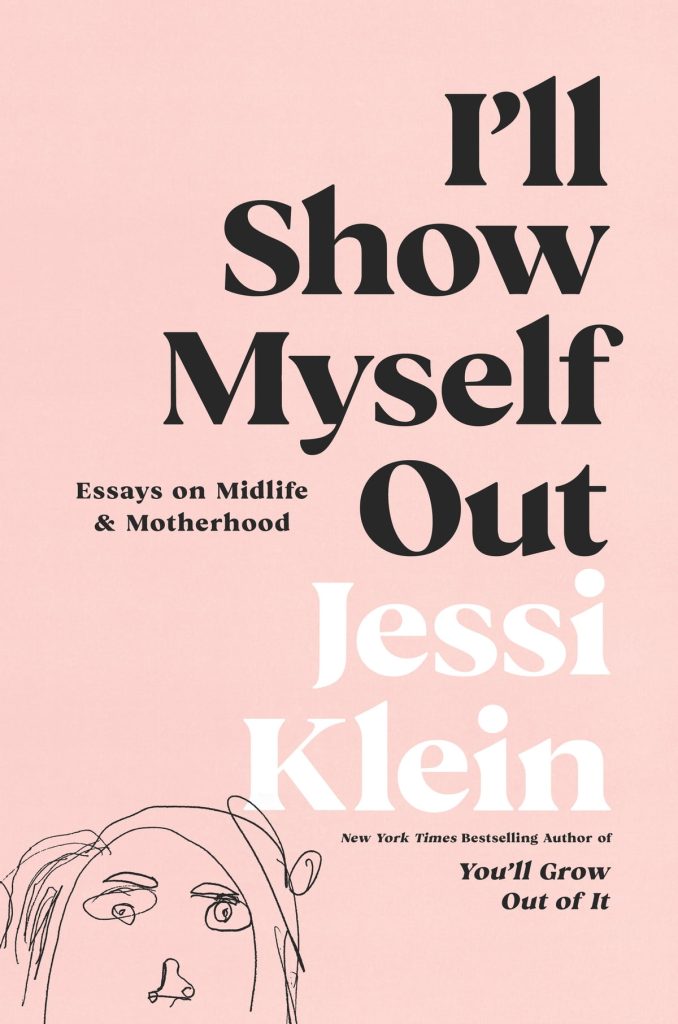
I was first drawn to this book because I read a poignant excerpt where she compares the motherhood journey to the hero’s journey.
“The truth is that motherhood is a hero’s journey. For most of us it’s not a journey outward, to the most fantastic and farthest-flung places, but inward, downward, to the deepest parts of your strength, to the innermost buried core of everything you are made of but didn’t know was there. And what I’ve learned, now that I’m finally saying fuck it and taking a Xanax to just calm down and suck it up and write this book: there’s a reason motherhood as a story is so infrequently told.
It’s because, for so many people, our safest, sweetest, earliest memories are of nestling in our mother’s lap, in her rocking warmth, hearing her sing as we get milk-drunk and sleepy and burrow, heavy-eyed, into the crook of her soft arm. And if you knew that your mother’s journey, was intrinsically, a hero’s journey – if that was in any way an established narrative in our culture – you’d have to accept that this memory of womb-like safety, this foundation upon which so much of our identity is built, was often just an illusion. You’d have to realize that while you were blissed out on your mother’s lap, one of those epic battles, the kind that envelops heroes as they fight their way out of a ring of fire, was raging just above your head.”
Needless to say, I savoured this book. Her writing is superb and funny. I would give this book to every mother. What we need at the end of the day is not more advice books, but levity and a shared sense of camaraderie.
My biggest takeaway from this past year is that though the heroine battles within herself, the idea that she can do it alone is a capitalist lie. I nearly unravelled into a mess when, three weeks postpartum, Sam went back to work and I found myself suddenly alone with the baby. As a mother, I get bombarded with quick-fixes from books, courses, toys, gadgets every waking minute. The truth is, what really helped was my family taking turns showing up to cook, clean, and rock the baby so I could take a nap, and my friends providing me the emotional support and company essential to a new mother.
Naomi will be turning one in mere weeks so naturally I am coping with my mixed feelings (excited for all the milestones ahead but also wanting to freeze her in time *sobs*) by diving into books. Currently, I am knee-deep in How Toddlers Thrive. I just can’t quit.
